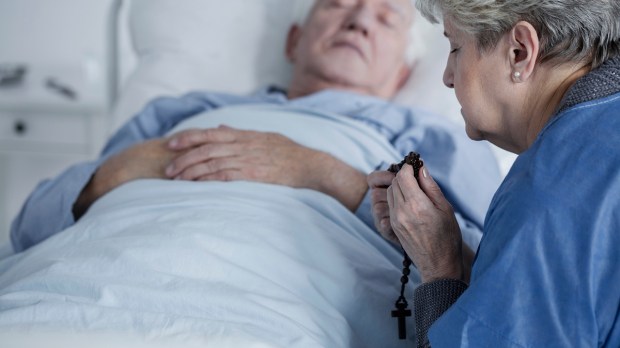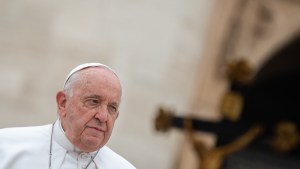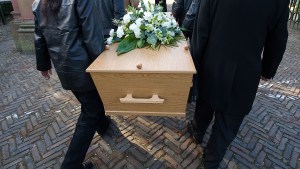Lenten Campaign 2025
This content is free of charge, as are all our articles.
Support us with a donation that is tax-deductible and enable us to continue to reach millions of readers.
In December 2022, Australian legislators legalized euthanasia in the Northern and the Australian Capital territories. The turning of these two long-time holdouts – since 1997 when the first such laws passed in the nation – made euthanasia a legal medical treatment in all Australian territories. Now, less than a year later, the Australian Catholic Bishops’ Conference (ACCB) has released a document to guide priests, chaplains, and pastoral workers on how to offer pastoral support to Catholics considering euthanasia.
Titled To Witness and to Accompany with Christian Hope, the 24-page document is presented as a learning resource, with the bishops numbering each point they make for easy reference. Some of the topics included in the bishops’ guidance include: “What Christian accompaniment means,” “Absolution when the patient is open to conversion,” and “A Christian response to suffering.”
Archbishop Peter A. Comensoli, chair of the Bishops Commission for Life, Family and Public Engagement, noted in an ACCB report that the question of how to attend to the spiritual and pastoral needs of a Catholic who has chosen euthanasia is a hard one. He said that the focus of the priest or pastoral workers should be on making God’s grace and mercy evident to the patient:
“To Witness and to Accompany with Christian Hope is particularly timely given the many enquiries bishops have received from chaplains for guidance, and the fact that euthanasia is available throughout the country,” said Archbishop Comensoli. “It is vital that chaplains and pastoral workers have the information to confidently respond to the realities that are facing them as they minister to Catholics in hospitals, in aged care and in their own homes.”
He went on to explain that the bishops consulted with a variety of professionals in the fields of theology, ethics, liturgists, and medical doctors to prepare the document. They received further advice from the Vatican’s Dicastery for the Doctrine of Faith.
A passage from the document reads:
“Euthanasia contradicts the goodness and dignity of each human person, created in the image of God – a unique, irreplaceable individual,” the bishops’ document states. “Accompanying someone who is expressing a desire for euthanasia is an act of charity that should be offered in a way that does not require the pastoral companion to suspend their firm commitment to the Church’s clear teaching that euthanasia is never morally permissible.”
As more nations pass laws to permit euthanasia as a “treatment” for a variety of conditions, the Australian bishops’ document becomes more relevant and useful as a resource to guide Catholics through troubling scenarios. The bishops have made the document freely viewable to all in a PDF file on the ACCB website. Click here to read the full document, To Witness and to Accompany with Christian Hope.



